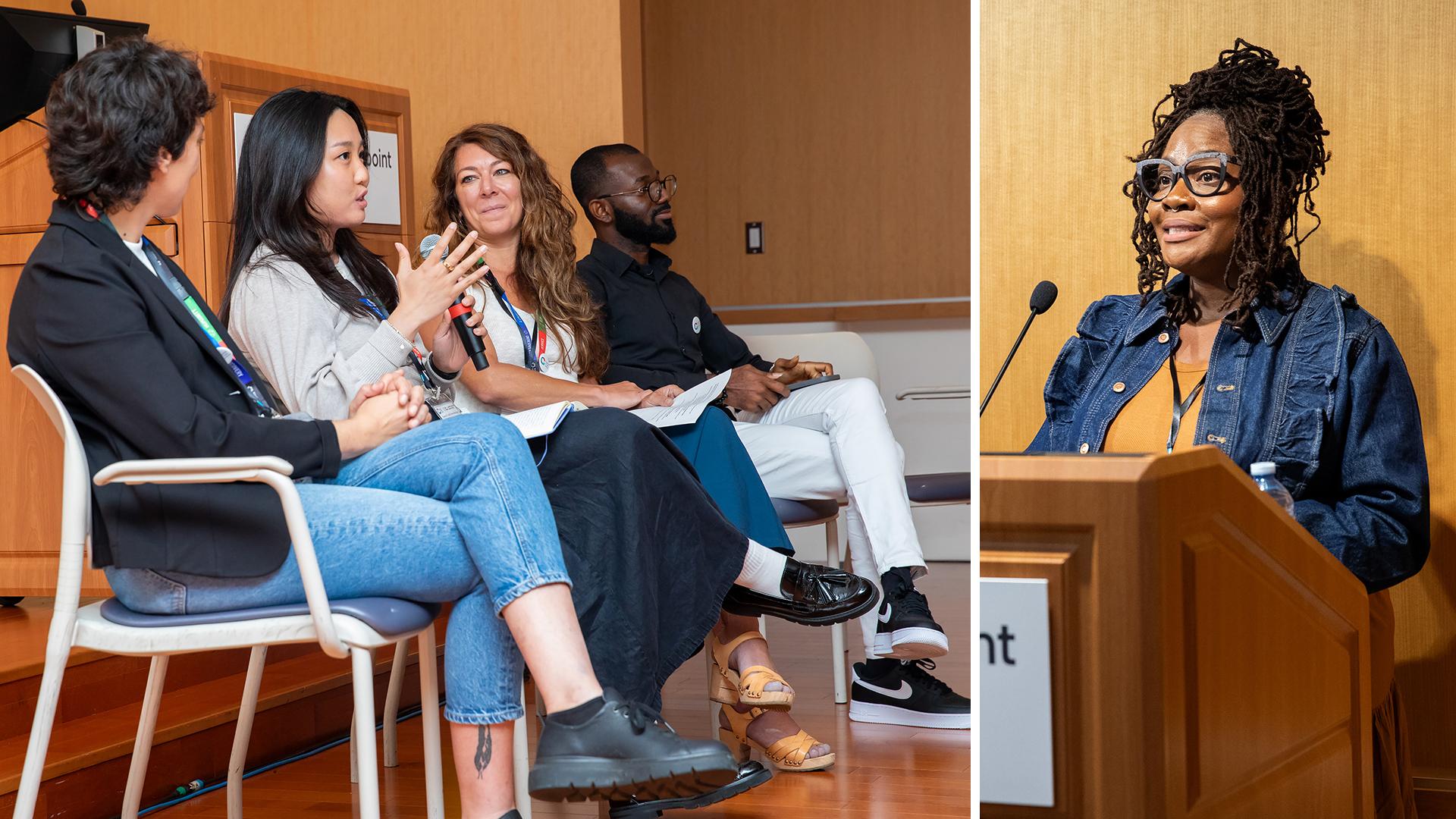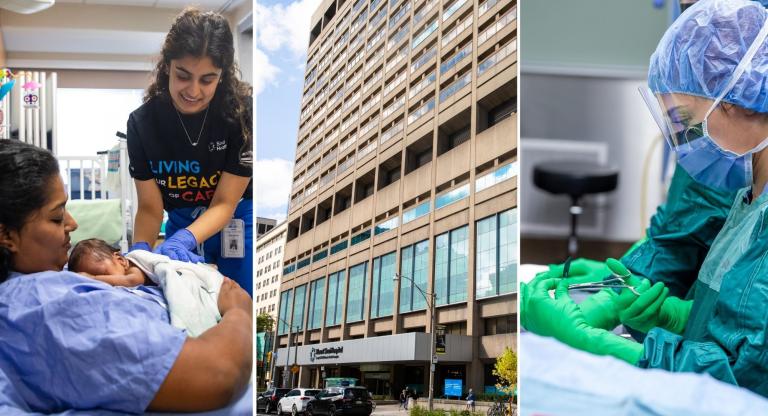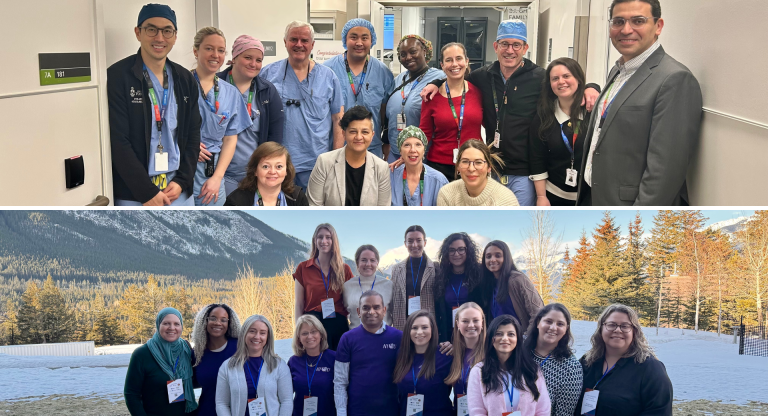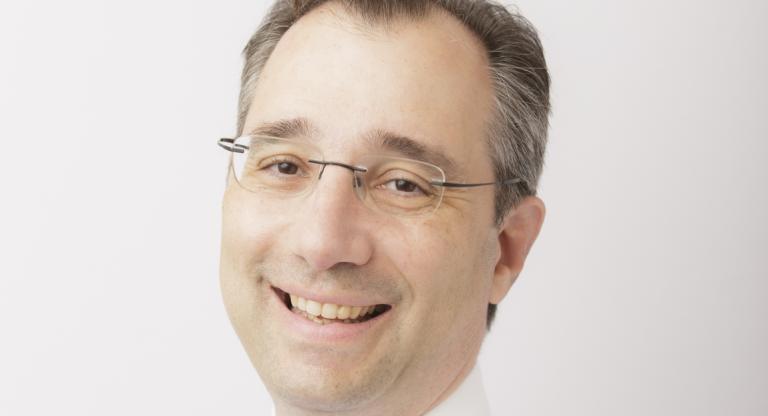Science of Care Expo 2025: Advancing compassionate, evidence-informed care

On September 10, 2025, over 100 scientists, nurses, health-care workers and trainees gathered at the Science of Care Expo, the annual conference of Sinai Health’s Science of Care Institute (SCI), Canada’s only research institute dedicated to improving health outcomes through evidence-informed compassionate care.
Held at Hennick Bridgepoint Hospital in Toronto, the event featured keynote speakers and presentations from trainees and research leaders, who shared the latest advances in evidence-informed care practices.
“At the Science of Care Institute, we believe that advancing compassionate, person-centered care requires more than just good intentions. It requires purposeful thought, rigorous research, collaboration across disciplines, and a deep commitment to implementation and ongoing evaluation. The Expo is a celebration of that commitment and a chance to learn from one another as we work to transform care outcomes and experiences for all patients,” said Dr. Lianne Jeffs, Chief Scientific Officer, SCI, and Research and Innovation Lead at Sinai Health.
Unfortunately, person-centred care is still not a universal experience, particularly for individuals from underrepresented groups. This reality was powerfully illustrated by the first keynote speaker, Angella Beckford, Co-Chair of the Patient and Family Advisory Council at Hennick Bridgepoint. Beckford shared how she was empowered to become a patient advisor after finally receiving the care she needed at Hennick Bridgepoint, following a negative and potentially dangerous experience at another hospital. She emphasized that compassionate care can be the key to receiving proper treatment, and that through advocacy she can help others who cannot speak for themselves.
At SCI, involving patients and their care partners in all stages of research, from design to implementation and evaluation, is a core principle. According to Dr. Jeffs, other key ingredients for success include collaboration across disciplines and health-care professions, robust research funding, and thoughtful implementation of practice changes, which require ongoing consultation with all partners.
The importance of implementation science in driving change was further emphasized by Dr. Marianne Saragosa, Embedded Nurse Scholar and Translational Research Scientist at SCI. Findings from her study on the integration of the Registered Practical Nurses (RPN) into the Professional Care Delivery Model implemented at Sinai Health showed that early and continuous staff engagement, ongoing adaptation and evaluation after implementation are essential.
Implementation science, when combined with digital technology, especially artificial intelligence, can be a powerful catalyst for person-centred care. Dr. Carolyn Steele Gray, a SCI Senior Investigator specializing in implementation science and digital health, highlighted how technologies can enable compassionate care when intentionally designed to recognize and respond to individual needs. In doing so, these tools can not only enhance the quality and efficiency of care delivery but also preserve and elevate the human element of health care.
AI is also helping clinicians keep up with practice-changing research. Dr. Michael Fralick, Clinician Scientist at Sinai Health, presented Trial Files, a tool developed by his team that delivers clinical trial results to physicians via email. Since its launch two years ago, it has attracted more than 2,000 subscribers in more than 40 countries.
The Expo also featured seven rapid-fire presentations by Sinai Health clinicians and staff, showcasing a wide range of ongoing studies funded by SCI. Among these were the use of 3D-printed cutting guides to reduce surgical time and improve outcomes; prevention of unnecessary blood transfusions to enhance the experiences of patients’ blood management; and proactive monitoring and tailored compassionate care for inflammatory bowel disease during pregnancy.
Trainees took centre stage again during a panel discussion. PhD students Obinna Ezeani and Julia Wong, postdoctoral fellow Dr. Vanessa Wright, and research fellow Shaden Rizek shared their thoughts on research, innovation, mentorship and collaboration.
“Innovation is not just new technology, it is the process itself”, said Ezeani, who is working with Dr. Steele Grey on implementing a digital communications tool to support patients with complex care needs as they transition from hospital to community.
“It is about asking the right questions to create solutions that are practical, meaningful and also improve people's experiences.”
Dr. Gary Newton, President and CEO of Sinai Health, and Dr. Anne-Claude Gingras, Vice President of Research, were also in attendance. Dr. Gingras said, “We are proud to have at Sinai Health such a vibrant community of researchers and staff from across the health-care spectrum who are equally committed to rigorous science and person-centred care. As Canada’s only institute dedicated to compassionate care research, the Science of Care Institute is at the forefront of driving evidence-based practice change and its implementation, advancing care not only for our patients at Sinai Health, but for individuals around the world.”












